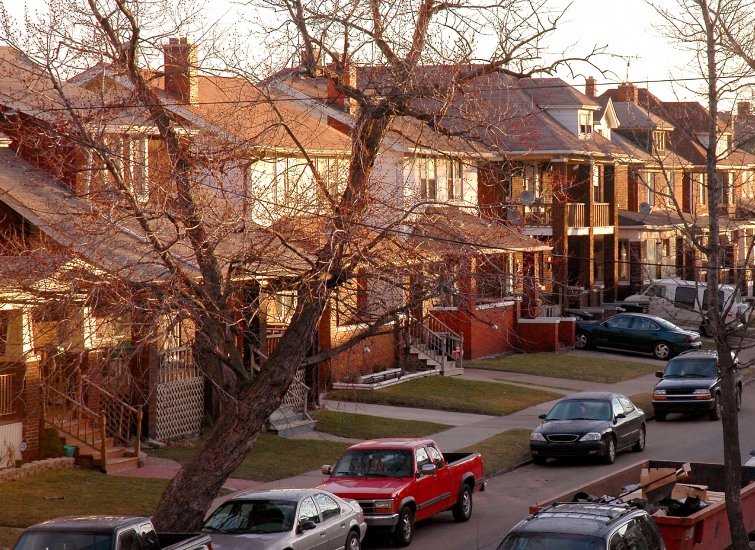The Metro Detroit area is diverse and dynamic, and offers real estate investment opportunities to match. With its unique mix of affordability, growth potential, and a growing business sector, Detroit appeals to investors looking to capitalize on emerging opportunities.
However, investing in Metro Detroit’s real estate market requires a keen understanding of the data trends shaping property values, rental demand, and economic growth, as well as in-depth knowledge of the wide range of neighbourhoods and their unique characteristics. Developing informed strategies to capitalize on emerging opportunities and mitigate risks is crucial.
Below is a list of dos and don’ts to assist with strategizing, based on current market conditions in Metro Detroit.
Market Trends and Opportunities
Before delving into the dos and don’ts of investing in Metro Detroit real estate, it is important to be aware of the market dynamics.
The Metro Detroit investment real estate market presents lucrative opportunities due to its affordability and growth potential. With a median home price of $85,000 in Detroit and stable prices in Wayne County, investors can find properties within diverse budgets. High rental demand and a competitive market with a sale-to-list price ratio of 97.05% signal strong investment potential. Detroit’s growing business sector, population, and stable employment rates further bolster the market. High transaction volumes and growing property values further indicate a growing market in the area. 1
Dos:
Conduct Thorough Research
The Metro Detroit real estate market is constantly changing. Before making any investment decisions, conduct comprehensive research, and be sure to have the most current data. Analyze market trends, property values, rental rates, and economic indicators like employment rates to identify promising investment opportunities.
Diversify Your Portfolio
Diversification is key to mitigating risks and maximizing returns in real estate investment. Consider diversifying your portfolio across different property types, neighbourhoods, and investment strategies to spread risk and capitalize on varied opportunities.
Stay Abreast of Economic and Business Trends
Keep a pulse on economic and business trends shaping the Metro Detroit market. Monitor developments such as new business startups, job growth, and population expansion, as these factors can influence property values and rental demand. A University of Michigan economic outlook report expects economic growth in Detroit to start picking up and continue steadily through 2028. However, as always, it is important to keep up with the most current information.
Leverage Pro-Investment Policies
If you are a Canadian, be aware you can take advantage of pro-investment policies in Detroit, such as investor-friendly regulations and incentives.
Target Affordable Properties with Growth Potential
Focus on properties with maximum growth potential, such as in Detroit city, where the median listing home price stands at $85,000 as of January 2024, offering excellent affordability, but carefully selecting those where there is good potential for growth. Detroit city has plans in place for revitalization, so selecting properties that may benefit from these efforts, or ones that can easily be upgraded or updated to increase value can make for a good investment.
Look for properties listed below market value but experiencing above-average price growth, such as those in neighbourhoods like Regent Park and Grixdale, which offer attractive investment opportunities for value-oriented investors.
Take Advantage of High Price-to-Rent Ratios
Typical rents in the Metro Detroit area are relatively high, providing good opportunities for potential landlords, especially considering the lower price of housing. This highly favourable price-to-rent ratio suggests the potential for profitable rentals. Given that there is an expected increase in population and a resurgence in the business sector, creating more demand for rentals, investing in rental properties may provide ongoing, stable income.
Consider Multi-Family Housing
When looking into rental opportunities, be sure to explore multi-family housing opportunities. With rental rates in Michigan and Metro Detroit experiencing significant growth, investing in multi-family properties can provide stable rental income and long-term appreciation potential, catering to a diverse range of budgets and investment strategies.
Joe Hammel of Fire Realty notes, “Many newer investors looking at getting into renting are nervous about multi-family housing. While there may be more of an initial investment involved, multifamily rentals, with multiple units under one roof, provide lower vacancy risks, more stable income from tenants, and streamlined management, since one property manager can more easily monitor everything.”
He goes on to say “However, Detroit has a lot of business travellers, and a lot of demand for short-term rentals like Airbnbs, so that option is still a lucrative one for many.”

Identify Neighbourhoods with High Sale-to-List Price Ratios and Short Days on Market
While you want to avoid getting into bidding wars, targeting neighbourhoods with high sale-to-list price ratios, can be a good strategy. This ratio indicates strong buyer demand, which is a good indicator that a property will retain value because it is in a popular area.
The Metro Detroit area is generally affordable, so even buying in areas with higher demand will still likely be a good deal. Carefully choosing a property with good potential and value in one of these popular areas can lead to good returns. The sale-to-list price ratio in Metro Detroit is significantly high, despite lower home prices, sitting at 97.05% in January 2024.
Partner with a Knowledgeable Realtor
Collaborating with an experienced realtor who understands the local market can provide invaluable insights and guidance. Look for a realtor with a proven track record of success and expertise in analyzing ROI and market trends. The Metro Detroit area has a rich variety of neighbourhoods and suburbs, and gaining the expertise of someone who really knows all of the areas and the types of opportunities each one can provide is crucial.
Don’ts:
Overlook Neighbourhood-Specific Risks and Factors
When looking for good deals, avoid overlooking neighbourhood-specific risks and factors that may impact investment performance, such as crime rates and infrastructure developments. Conduct thorough due diligence to assess potential risks and mitigate them effectively, ensuring the long-term viability of investment properties. A good realtor familiar with the area can guide you.
According to Joe Hammel, “There are many safe neighbourhoods, even in downtown areas, which some investors who don’t know the area may be nervous of buying in, but those that know these areas, know that they are good areas, and popular ones.”
Rely Solely on Short-Term Speculation
Resist the temptation to rely solely on short-term speculation or market timing when making investment decisions. Instead, adopt a long-term investment approach based on the fundamentals of real estate, including property location, rental demand, and economic stability, to build a resilient and sustainable investment portfolio.
Neglect Property Management and Operational Costs
When investing, be sure to have fully considered what property management, maintenance, and other operational requirements will be necessary, both in terms of time and money. Neglecting effective property management practices and operational costs can lead to financial strain and diminished returns on investment.
Be sure to prioritize property management strategies that ensure tenant satisfaction, property maintenance, and financial efficiency, mitigating risks and maximizing rental income potential. In most cases, a property management service is beneficial. While some investors may try to avoid this to save money, in the long run, the local knowledge and expertise of a professional service is worth it, especially if you are investing in one of Detroit’s older buildings. Furthermore, Detroit has specific landlord-tenant laws and regulations that landlords must adhere to. Property managers can help landlords stay compliant with local laws.
Overextend Financially
Avoid overextending yourself financially without conducting a thorough analysis and risk assessment of potential investment opportunities. Evaluate properties based on their financial viability, including rental income potential, operating expenses, and projected returns, ensuring they align with your financial goals and risk tolerance.
Part of this involves ensuring you have enough capital to complete any necessary upgrades and repairs, and sufficient cash flow to cover property management fees, insurance, advertising, and other such expenses. Getting quotes for all expected costs before committing will help. Also, budget for the unexpected, including legal fees and vacancy loss. It’s not unusual to have a couple of months in between tenants, so you should be prepared for this.
Forget Due Diligence
Always conduct your due diligence when evaluating investment opportunities. Conduct thorough inspections, assess property values accurately, and scrutinize financial projections to avoid costly mistakes. Contract building experts and other professionals as necessary.

Partnering with investor-friendly realtors like the FIRE Realty Team, with a track record of success and expertise in analyzing ROI and market trends, can provide invaluable guidance and maximize returns on investment.
Capitalizing on emerging opportunities while minimizing risks and maximizing returns on investment. With careful analysis and strategic planning, investors can unlock the full potential of Detroit’s vibrant and evolving real estate landscape.








